Richard Henry Pratt writes to Commissioner of Indian Affairs Ezra Hayt, responding to a forwarded letter from Major Pollock of the Rosebud Agency. Pratt argues against screening students' letters home, suggesting that it would harm the government's relationship with their parents and chiefs. Pratt also addresses students' written complaints…
Employees Reading Students' Mail
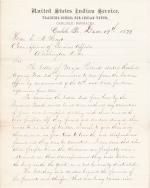
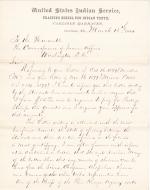
Richard Henry Pratt requests additional money for postage of student letters from the Commissioner of Indian Affairs. Pratt states that letter-writing increases student morale and promotes the school's reputation among their families and tribes.
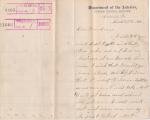
Mary M. Kennedy provides Thomas J. Morgan two letters regarding claims made by students at Carlisle regarding their punishment over complaints that they are not receiving enough food to eat. She further states that Richard Henry Pratt punishes students when he hears they have written home complaining and to not show the letters to him.
…
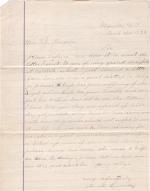
Mary M. Kennedy writes to Thomas J. Morgan asking him to help her granddaughter at the Carlisle Indian School. Kennedy claims that her granddaughter is in danger and that all of the students are afraid of Richard Henry Pratt. Kennedy ends her letter by requesting the return of her granddaughter.
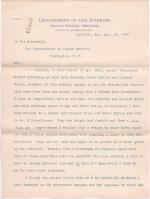
Richard Henry Pratt responds to the Office of Indian Affairs letter regarding the request of John Kennedy, Richard Grant, and Peter Dillon to be returned to their homes.
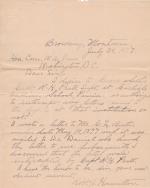
Robert J. Hamilton inquires of W. A. Jones if Richard Henry Pratt has the authority to intercept any letter sent to the students of the Carlisle Indian School.
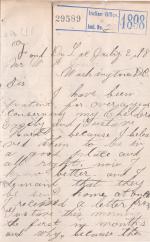
Richard Henry Pratt responds to the request of Clara Bowers for the return of her children Emily and Gustave Hardt from the Carlisle Indian School. Included in the letter is a complaint of Gustave Hardt of mistreatment during his time on outing.
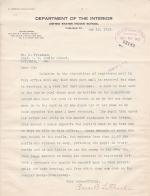
Supervisor of Indian Funds Benton informs Commissioner of Indian Affairs F. H. Abbott that $35,000 of Carlisle Indian School students' money is held in the Farmers Trust Company in Carlisle, and the school handles all business and all record-keeping of this money. Benton recommends that the students should have to keep an account book and…
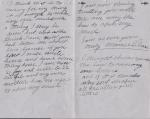
These materials include correspondence regarding a complaint made by Mamie Vilcan that Anna Ridenour, Matron, was opening her mail. The Commissioner of Indian Affairs asked Superintendent Friedman to look into the affair, and later reiterated that officials should abide by the law while supporting the actions of the School.
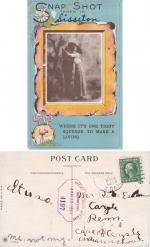
These materials include postcards sent to female students attending the Carlisle Indian School. These postcards were confiscated by school officials who believed that their subject matter was inappropriate for their recipients. The confiscation was done "in accordance with Section 156 of the Rules for the Indian Service." The confiscated cards…
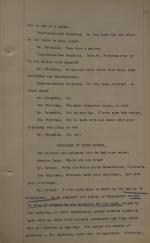
A typed transcript of Henry Broker's testimony before the Joint Commission to Investigate Indian Affairs. At the time Broker was a student at Carlisle.
Broker testifies about unfair expulsion during Superintendent Friedman's administration especially as it related to complaints about school staff reading student correspondence.
In…
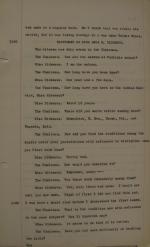
The typed transcript of Anna H. Ridenour's testimony before the Joint Commission to Investigate Indian Affairs. At the time Ridenour was the matron at Carlisle.
In her testimony Ridenour explains her perspective on the use of corporal punishment on Julia Hardin and answers questions about the friction between herself and the students in…
